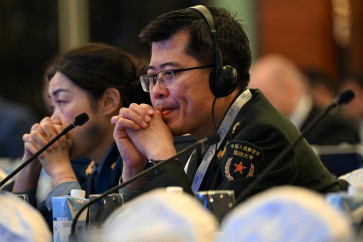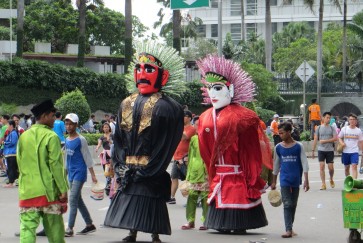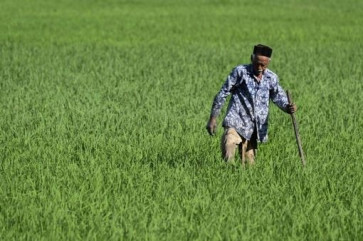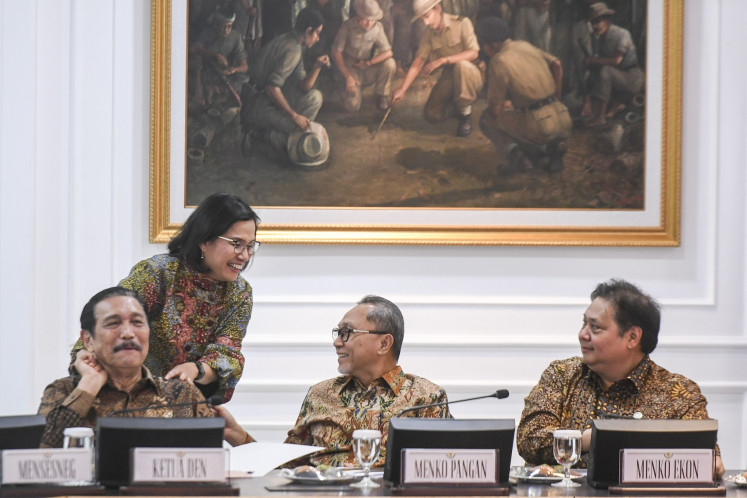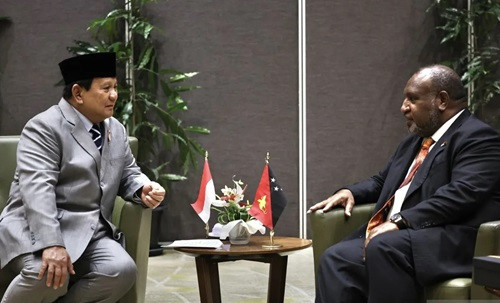Plans for border posts spark renewed pride
Indonesia’s border areas have often been associated with underdevelopment and backwardness, resulting in a sense of inferiority for the local and customary peoples residing at the frontiers
Change text size
Gift Premium Articles
to Anyone

I
ndonesia’s border areas have often been associated with underdevelopment and backwardness, resulting in a sense of inferiority for the local and customary peoples residing at the frontiers.
Sooner or later this has to change, says Robby Manoh, the leader of Amfoang — an ancient kingdom based in the hinterlands of East Nusa Tenggara.
“Located in remote areas, our borders are like a back-alley door: isolated, slummy and backwards,” Robby said. He was convinced these areas should instead be considered as the country’s front door, at once open and advanced — reflecting the pride of the nation.
After decades of waiting, Roby and his customary kingdom might still see the region develop as they envisioned.
The Amfoang Kingdom, which inhabits an area bordering on Timor Leste’s Oecusse region, would boast a better border post this year, following an instruction signed by President Joko “Jokowi” Widodo to develop 11 new integrated cross-border posts across the country.
The new border posts are located in five provinces bordering Malaysia, Timor Leste and Papua New Guinea, as well as one on the Natuna Islands that border the South China Sea.
“It’s not just a border post; with quarantine areas, immigration checks and customs, as well as integrated markets, it can become a facility that supports the population’s economic growth in the surrounding areas,” Roby said.
The government had previously established seven integrated border posts in Entikong, Aruk and Nanga Badau in West Kalimantan, Motaain, Motamasin and Wini in East Nusa Tenggara and Skouw in Papua, which were completed in 2018.
According to the 2018 records of the Directorate General of Immigration, Indonesia has 66 immigration posts along its borders, of which 39 are land posts and 27 are sea posts.
On Monday, Home Minister Tjahjo Kumolo said the onus was on local governments to provide support to coordinate the transfer of land and assets, as well as to process land rights.
The head of East Nusa Tenggara’s border management agency, Paulus Manehat, claimed he had informed the communities in Oepoli and Napan about the government’s plans and said that integrated border posts would be able to contribute to the rapid growth of the local economy.
He said he had already asked local property owners to provide some of their land for the construction of the posts.
Coordinating Political, Legal and Security Minister Wiranto recently said that the development of such facilities would lead to the building of others in the immediate vicinity, like community health centers, markets and schools, and “automatically create new economic shelters that would later develop into cities in the border area”.
Separately, Natuna administration spokesperson Budi Dharma said that it was the regional office that had asked Jakarta to develop a border post on Serasan Island.
“Currently, the people [of Serasan] have to travel to eastern Malaysia by traditional means to illegally sell their produce and fish,” Budi said on Tuesday.
A new border post in that area would discourage the local population from “playing hide and seek” with both Indonesian and Malaysian officials, said Marka, head of Natuna district’s border management unit. In Pontianak, the chairman of the city’s Indonesian Employers Association, Acui Simanjaya, welcomed the development of the border post in Jagoi Babang, West Kalimantan.
“The more gates we have, the easier it would be to distribute the goods we produce overseas,” he was quoted by tribunnews.com as saying.
Economists were also on board with the government’s plans, with Enny Sri Hartati from the Institute for Development of Economics and Finance (Indef) saying that development of the borders would have multiplier effects on the economy.
“In West Kalimantan, for instance, the industrialization drive in Malaysia is increasingly felt at the border areas, resulting in our oil palm farmers selling their produce to Malaysian companies,” she said.

